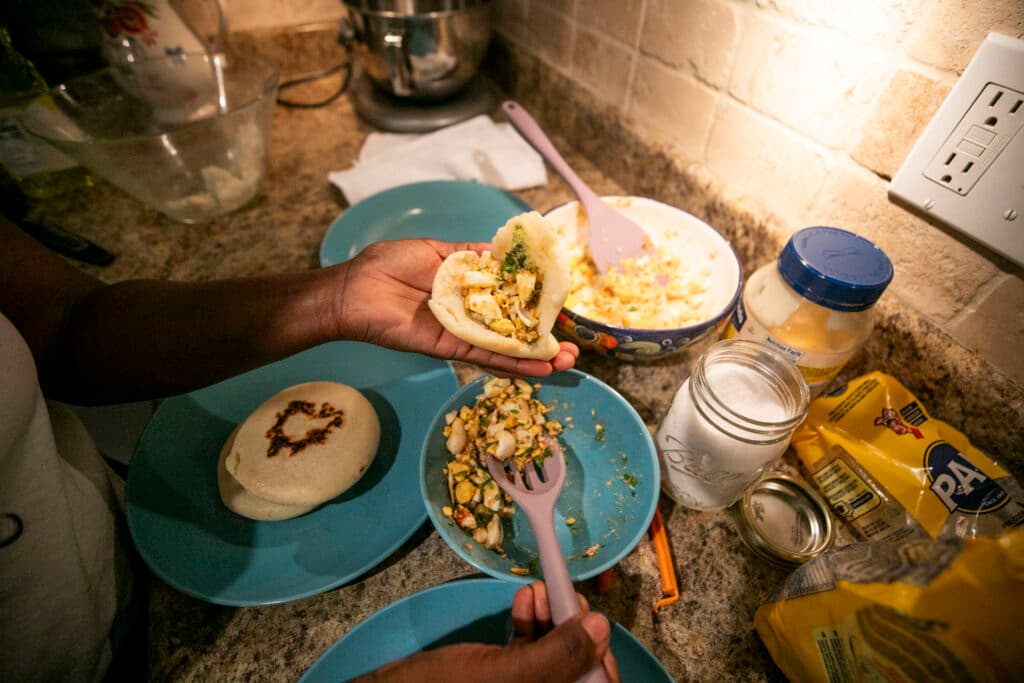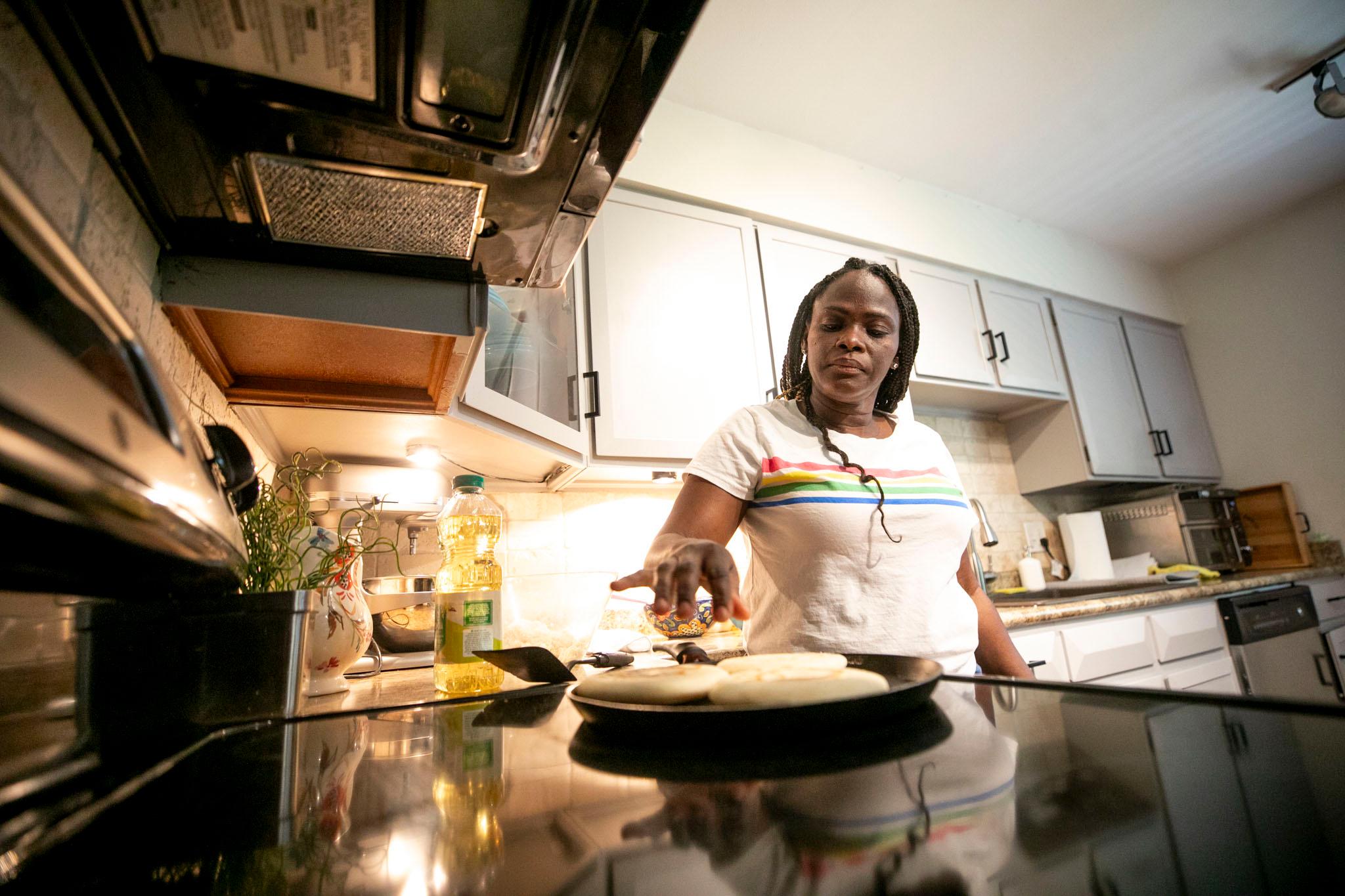Using just her fingertips, Venezuelan newcomer Lila Ylarraza flips round doughy cakes on a stove top, crisping up each side.
Ylarraza traditionally ate these arepas for breakfast (truly, for any meal) in her hometown of San Felipe.
With the help of a University of Denver assistant professor, Ylarraza and other immigrant chefs are sharing nostalgic home country recipes in a new cookbook that helps capture some of who they are as newcomers in Denver.
“My mother always told me, ‘Stand next to me as I’m cooking so that you can see,’” Ylarraza said. “And that with love, everything will turn out okay.”
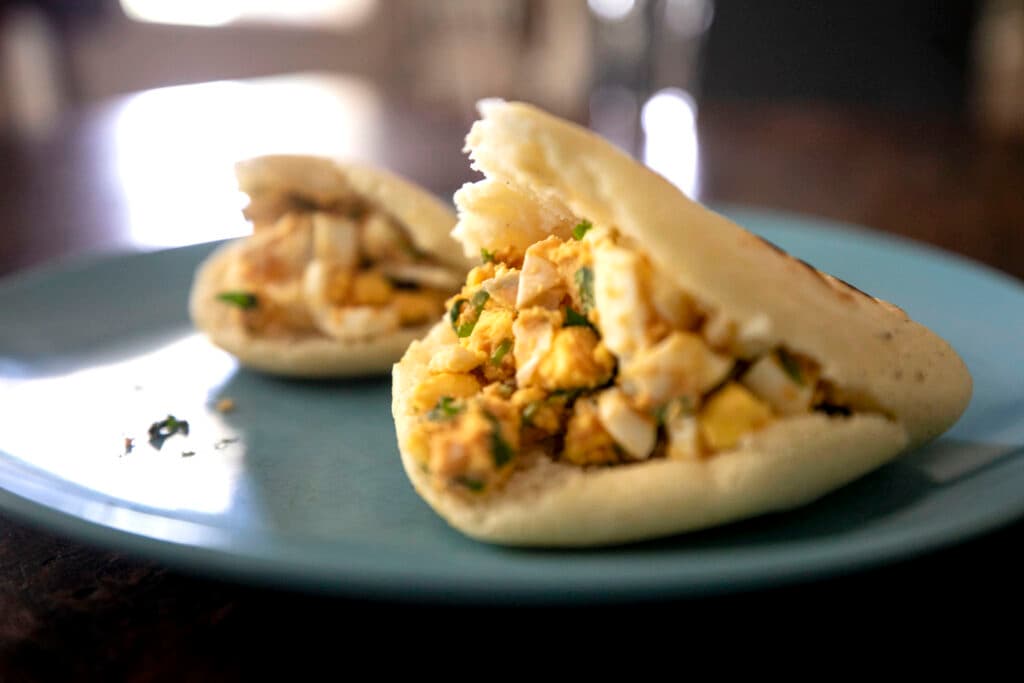
'There’s an exercise of liberation that happens when we center the testimonies of community'
Dr. Roncoroni, a psychologist and associate professor at the University of Denver, co-authored the cookbook with her husband Delio Figueroa.
"Cocina Libre: Immigrant Resistance Recipes" features 35 recipes and testimonials from immigrants living in Denver. The book highlights people from Peru, Ukraine, Mexico, Venezuela, Afghanistan, Ethiopia, Bangladesh and Guatemala, just to name a few. (You can buy a copy here.)
Listen to the story here
Proceeds from book sales will go to the Colorado Immigrant Rights Coalition, which focuses on advocacy efforts for the rights and well-being of immigrants across the state.
“There’s an exercise of liberation that happens when we center the testimonies of community,” Roncoroni said. “We love through food, we care for each other through food, we grieve through food. Being able to cook together and share meals was an exercise in identity affirmation.”
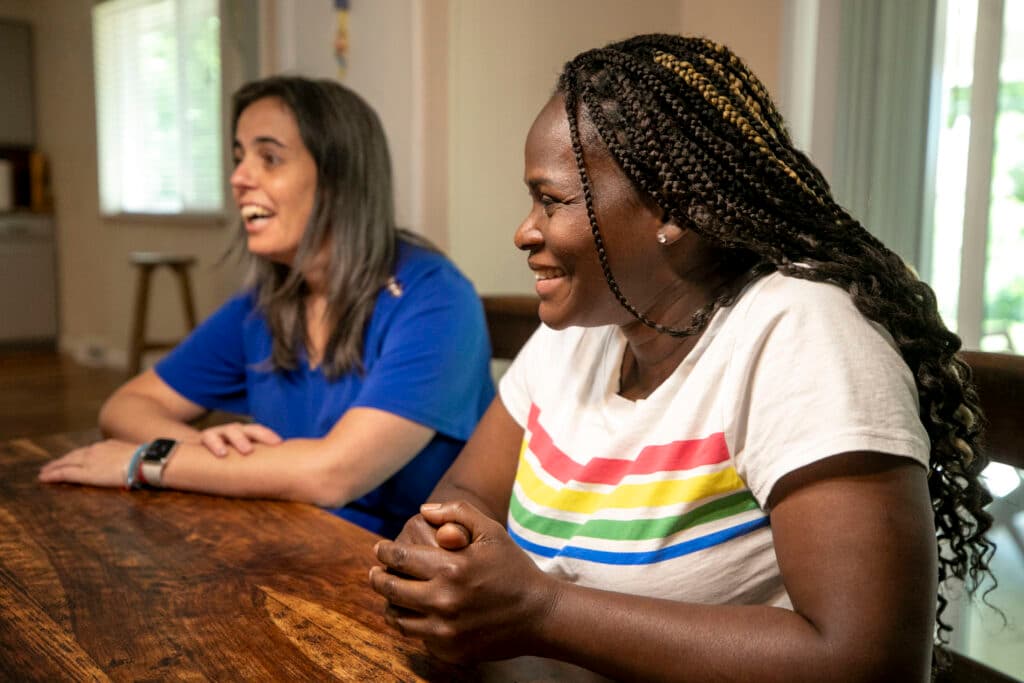
Originally from Buenos Aires, Argentina, Roncoroni’s research on culturally sensitive health care and health promotion has led to years of working closely with immigrant communities.
Having never written or produced a cookbook before, Roncoroni and Figueroa asked immigrants to share recipes that represented who they were as a way to see a different side of people living in the shadows.
“You remove the power differential,” Roncoroni said, explaining the process of connecting with people as a doctor and faculty in higher education. “As we’re cooking with people some of that gets removed, it just vanishes and I think that’s where the space for storytelling gets created.”
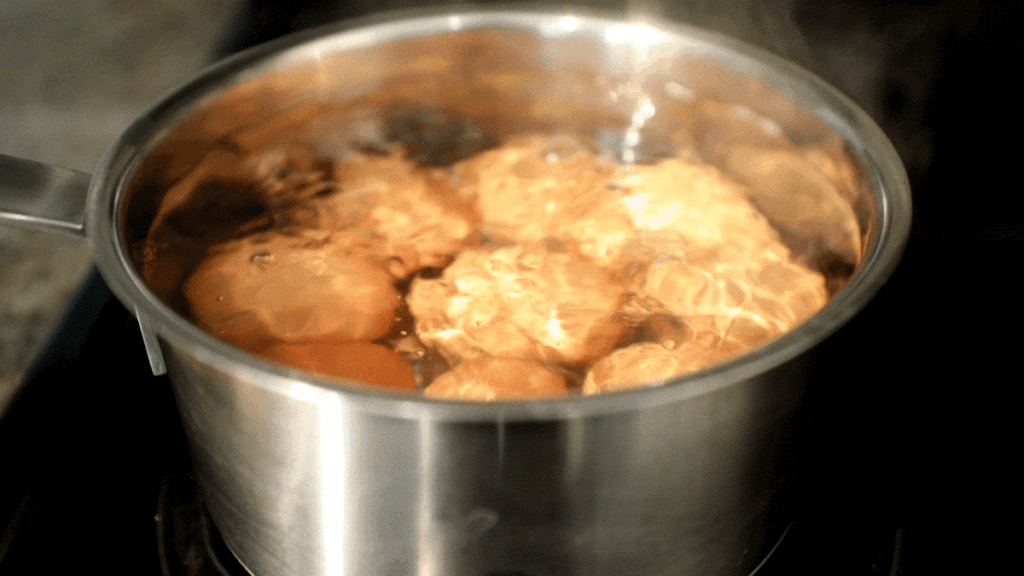
In Roncoroni’s home kitchen, Ylarraza cuts cilantro and hard-boiled eggs that will be used for the insides of the arepa.
“Do you remember the first time you made an arepa?” I ask.
“Si,” Ylarraza said. “Me salió en forma de triángulo.”
"It came out in the shape of a triangle." We laugh.
Sharing stories of the journey
"Cocina Libre" largely came together via word of mouth, Roncoroni said.
Many featured chefs in the cookbook have publicly shared their stories before, including Carlos Blanco, Ingrid Encalada Latorre and Victor Galvan.
“It’s so scary to tell your story when you’re at risk of deportation,” Roncoroni said. “So I think having some of them say, ‘No it’s okay, your story can be public and can be a really powerful model for people who maybe haven’t told their stories yet.’”
Ylarraza, who will have been in Denver for a year come September, shares stories from her journey to the U.S. in the book. She trekked through the treacherous Darien Jungle and rode atop La Bestia with her two daughters, one of her daughter’s boyfriends and her two nieces.
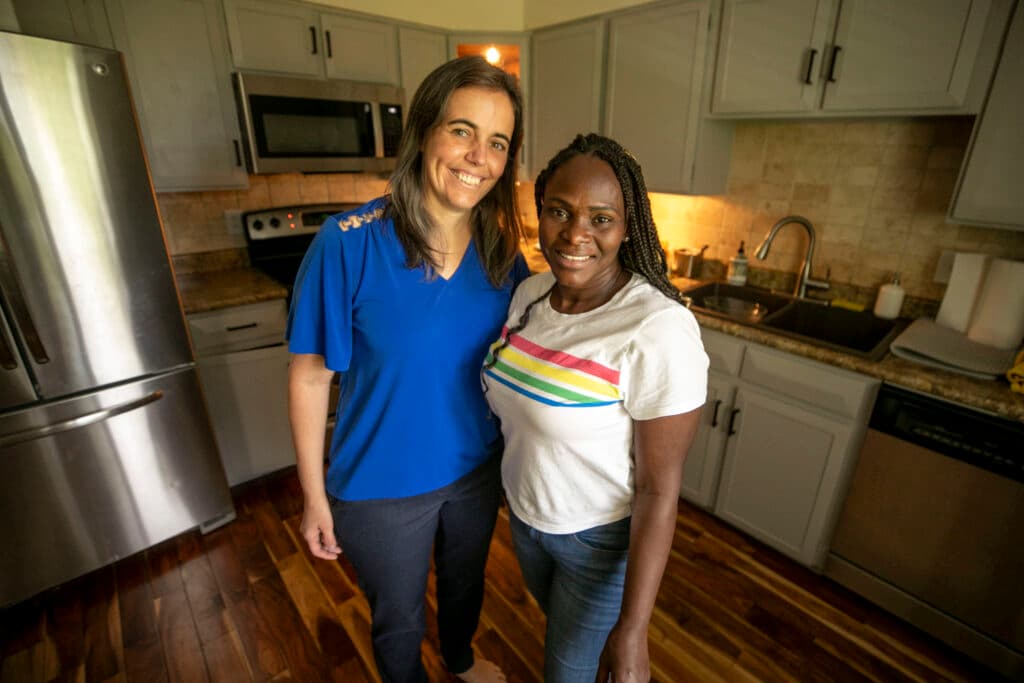
“The only guide we had on the way was God. No one else,” Ylarraza writes.
Gabriela Medina, originally from Mexico City and now a Westwood resident and health educator, described her recipe for Impossible Dessert (half chocolate cake, half flan) as a mix of her two sides: one life as a daughter in Mexico City, and another as a wife and mother of two children in Denver.
“No one would like to be in an immigrant’s shoes because it is difficult,” Medina said. “They look at us like delinquents or like we came to take what others have. But no, we came to work, to create, to pay taxes.”
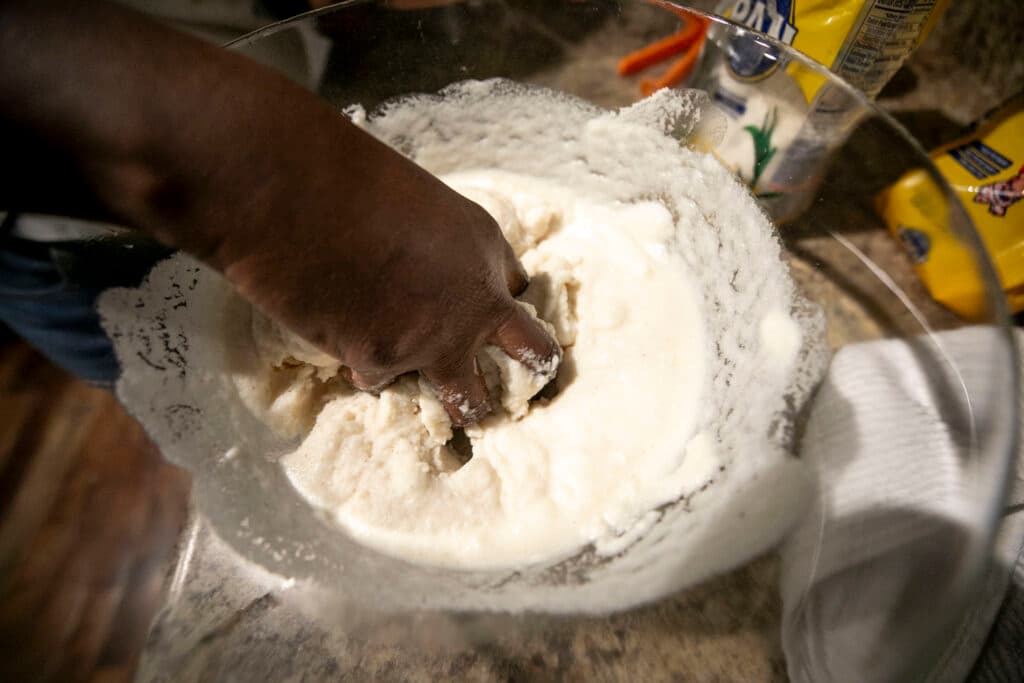
Remembering loved ones through food
Like many chefs that Roncoroni spoke to, the foods in "Cocina Libre" are nostalgic for Ylarraza.
The smell of arepas transports her back to Venezuela. It's almost an exercise in remembering her loved ones.
She dreams of opening a beauty salon and a restaurant someday.
“Yo se que con el favor de Dios lo voy a lograr,” Ylarraza said — “I know that with God’s favor I will achieve it.”
